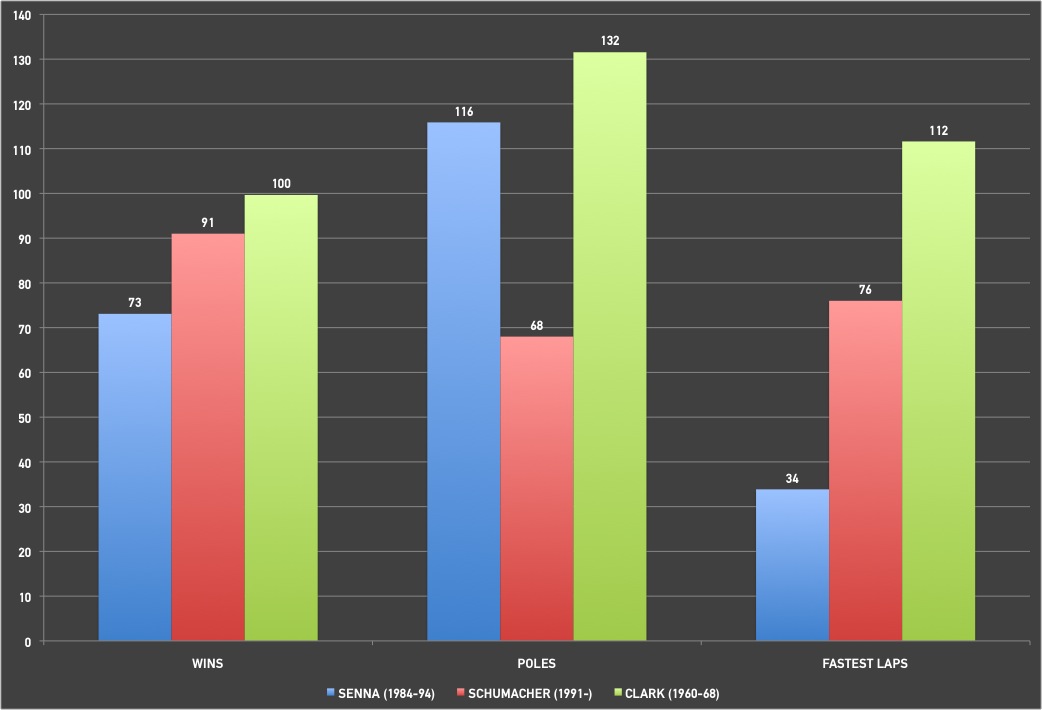I recently came across this interesting graph by Sean Kelly (F1 statistician and SPEED editor) which I thought I'd share. He compared how if Aryton Senna and Jim Clark had not died in their primes and went on to compete in as many races as Michael Schumacher had until the end of 2011 (287 races) whilst continuing at the succes rate they had throughout their careers (wins, poles & fastest laps), how their stats would compare to Schumachers.
http://peterwindsor.com/2012/03/22/tfl-slide-12/

As we currently have 5 other world champions currently on the grid, I thought I'd see how their stats would compare to the three drivers above if they all went on to start 287 races like Schumacher whilst continuing at their current success rate. (I only included their stats up until the end of 2011 like Sean Kelly's graph, to calculate their win rates etc.)

Obviously Vettel clearly stands out most among the current drivers as he's fortunately been in a competitive car for most of his short career so far, whereas Button at the other end of the scale has spent most of his much longer career so far in uncompetitive cars so his success rate is not as high. I do think it shows that for any of them to beat Schumacher's achievements will be an incredibly difficult task.
Jim Clark still stands well above the rest in all three categories which I find most impressive considering the danger factor and higher rate of mechanical failures in the period that he raced.
http://peterwindsor.com/2012/03/22/tfl-slide-12/

As we currently have 5 other world champions currently on the grid, I thought I'd see how their stats would compare to the three drivers above if they all went on to start 287 races like Schumacher whilst continuing at their current success rate. (I only included their stats up until the end of 2011 like Sean Kelly's graph, to calculate their win rates etc.)
Obviously Vettel clearly stands out most among the current drivers as he's fortunately been in a competitive car for most of his short career so far, whereas Button at the other end of the scale has spent most of his much longer career so far in uncompetitive cars so his success rate is not as high. I do think it shows that for any of them to beat Schumacher's achievements will be an incredibly difficult task.
Jim Clark still stands well above the rest in all three categories which I find most impressive considering the danger factor and higher rate of mechanical failures in the period that he raced.
 lol
lol so I could of seen him race.
so I could of seen him race.